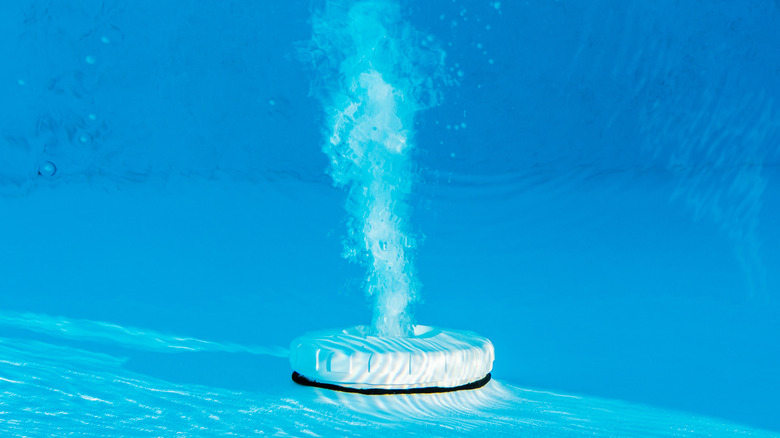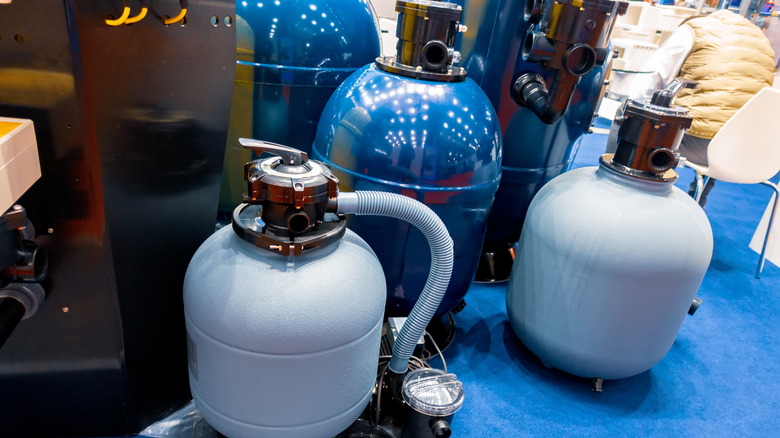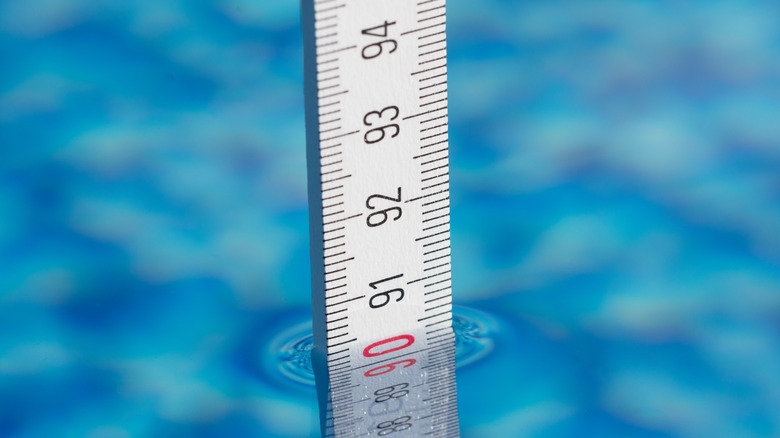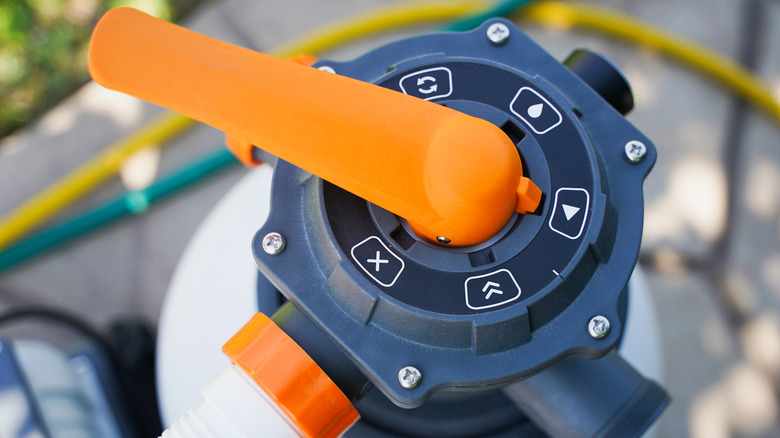How To Choose The Right Filtration System For Your Pool
According to Lanntech, swimming pool water gets contaminated with saliva, sweat, phlegm, cosmetics, and other body by-products from those who swim in it. When these pollutants are left in the water, they get absorbed into the bodies of other swimmers. According to SwimHappy, this may cause a host of diseases such as infections, dermatitis, rashes, and diarrhea.
But besides the activities of swimmers, some other factors are also responsible for the pollution of swimming pool water. If yours is an outdoor pool, it's likely to be affected by environmental pollutants such as bird droppings, stray water from unhygienic sources, dust, debris, and so on. An indoor pool is also susceptible to dust and mess caused by household pets and pests. This is why experts at Bayrol advise every homeowner to install a filtration system in their swimming pool and also adopt some other water treatment solutions to keep the pool hygienic and purified at all times. Unfortunately, shopping for a filtration system that will be perfect for your pool can be very difficult.
Weigh your options
It's important to choose a filter that's capable of efficiently removing the size and types of debris your pool collects. According to Royal Swimming Pools, there are three types of pool filters: diatomaceous earth filters (D.E), sand filters, and cartridge filters. Sand filters remove fine debris from water by forcing it through a tank that is 60% filled with clean silica sand. The cleansed water is then pumped into the pool while the debris collected in the sand tank is flushed out through an outlet pipe (per Pool Research). Though sand filters are budget-friendly and easy to operate, they waste a lot of water. Sand filters are also difficult to replace, however, according to Texoma Country Pools & Spas they are the best choice for large pools.
On the other hand, Poolman Aquatic Group recommends D.E filters as the best for removing micron-level particles while rating cartridge filters as the best for large-sized debris. They also explained that D.E filters use microscopic hollow shells that have to be replaced every year (this is also when the filter skimmer itself has to be back-washed). Similarly, cartridge filters are said to use a polyester screen that must be rinsed every six months.
Consider your pool size
Your filter has to be the right size for both the pressure of your pool pump and the water capacity of your pool. Pool Supplies Canada warns that if a filter is too small compared with its pump's capacity, it can get overpressured and fault out occasionally. Similarly, pairing an oversized filter with a low-power pump is an ingredient for inadequate water filtration.
To discover the water capacity of your pool, multiply its average depth by its surface area, explains Pool World. The average depth is the sum of the highest and lowest depths divided by two. Likewise, to find your pool's surface area, multiply its width by its length. After calculating your pool's water capacity in cubic feet, convert it to gallons by multiplying it by 7.18.
Finally, the ideal filter system must have a flow rate that matches the GPM of your pump. The flow rate is the amount of water that can pass through a filter per minute, while a pump's GPM is the amount of water it can pump per minute. To know how much water your pump will need to filter you will need to know your system's flow rate, Eco Outdoor said to divide your pool's maximum water capacity by 360 to calculate the liters per minute needed. They also urge you to consider your pool's turnover rate (the time required by a pool to cycle its water) when picking out a filter.
Know your budget
Budgeting is everything, especially when it comes to sprucing up a home with new appliances. Moreover, if you plan your budget smartly ahead of time, you are more likely to get value for your money. When budgeting for a new filter system, the factors you need to consider are the average price of the size and model of filter you're interested in, its installation and shipping costs, and its maintenance costs.
Looking at Home Depot, D.E filters are the most expensive, ranging between $500 and $2000, including shipping. In addition, Fixr said the installation cost of a D.F filter can be as high as $4,500, while pool cleaners charge $150 for a D.E filter cleaning service (per The Pool Boys). If you choose a cartridge filter system, they are sold for about $200 to $1000 at Lowes. And according to NynShop, most installers charge between $100 and $1600 for the installation. Meanwhile, the price of sand filters can be as low as $300 and as high as $1000, while the maintenance costs are around $450 (per River Pools.)
Keep an eye out for the backwash valve
One of the most significant components of a pool's filtration system is its backwashing valve. According to In The Swim, the purpose of a backwashing valve is to control the pressure of water used when flushing out the dirt collected in the sand bed of a sand filtration system or washing out a dirty D.E system (cartridge filter systems do not use a backwashing valve.)
There are three types of backwash valves, namely push-pull, multiport, and diverter style. Per Pool Stop, filtration systems that come with multiport backwash valves can be cleansed in several ways. They feature a rinse option for filter rinsing, a waste option for ejecting dirty water through a special waste outlet, a recirculating option for sending filtered water back to the pool for reuse, and a closed option for preventing water wastage. On the other hand, push-pull valves only have backwash and filter options, and the filtration systems that come with them are not as expensive as those with multiport valves. Finally, diverter-style valves are more likely to be found in modern filter system models than in older models. Aqua Doc Pool Clinic writes that they are the latest valve styles and offer the highest flow rate for swimming pools.
Go for the best material and the best brands
Unlike D.E systems and sand systems, cartridge filters are designed with mesh-plated cylindrical cartridges that trap dirt away from the water filtered through them, writes PoolAndSpa.com. This mesh plate is either made of polyester or nylon. Jason Mills explains that polyester meshes are resistant to the degradation that can be possibly caused by mildew, mold, and chemicals such as chlorine, while nylon meshes are thicker and more adaptive to high-pressure water.
But regardless of the type of filtration system that you intend to buy, it is important that it's designed by a reliable brand. According to both Pool Supply 4 Less and Archie Expo, some of the most recommended filtration systems are made by Hayward, Jandy, Intex, and ExtremepowerUS. However, before buying from any of these brands, take the time to do your own background research on them to find out whether they offer everything you need from a filtration system.





